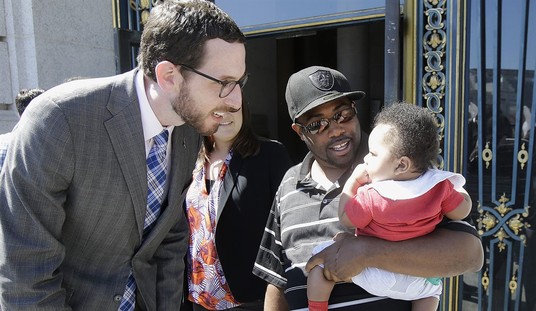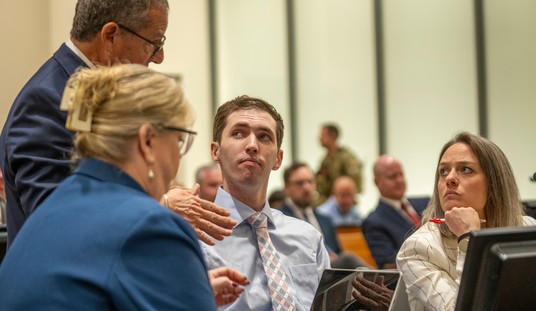When President Trump announced the creation of his voter fraud commission it generated the expected amount of outrage and accusations from Democrats. (Was anyone really surprised?) But after most of the bluster died down and the circus moved on to the next scandal of the day, a strange thing seems to have happened. There’s been some recognition of the need to clean up and monitor the nation’s voter rolls across party lines and even in the mainstream media. To be sure, they’ll still be carping about how the GOP is trying to “disenfranchise minority voters” and what have you, but this new report from NBC News takes the bold step of noting that even Democrats around the country are ready to admit that the voter rolls are a hot mess which leave the door open for trouble every election season.
Clean, accurate voter rolls might sound like an obvious goal. It saves local authorities money while making election operations more efficient. But the country’s voter rolls are typically a mess. A 2012 Pew survey found one in eight active registrations to be invalid or inaccurate. The rolls showed 1.8 million dead voters still on the books, while 2.75 million people had registrations in more than one state.
One reason? The decentralized, localized voter rolls are built for registration, not removal. Getting on the rolls at a new address is easier than removing your name from the county you just left, and different states and districts manage their rolls differently, too.
What’s more, keeping voter rolls properly maintained is complicated, since election officials have to keep tabs on every voter who dies or moves. Thousands of voters have the same name and even the same birthday, and mistakes happen.
While I’ve written on this subject before, the specific complaints being raised in the NBC report highlight some of the chief problems and might even suggest some possible solutions. First of all, we should realize that these periodic purges of the voters rolls are a worthwhile effort, but in the end remain largely futile. It’s an expensive, time consuming process which cleans up the rolls for a single election cycle or two while generating a significant number of challenges, lawsuits and all the rest. And then the same systemic problems which caused the rolls to become so polluted in the first place begin to corrupt them again.
I’m not saying we should abandon these cleanup efforts, but rather that we need to modernize the enrollment and tracking system at the same time so that we’re not constantly playing whack-a-mole with the issue. One of the first problems is that the system is controlled entirely by the states and there’s a lack of uniformity. Granted, the states have the right to control their own elections, but for national office (essentially just the President and Vice President) it seems as if some minimum record integrity could be imposed. (This is messy because it could potentially leave us with two “classes” of registration in states that don’t wish to comply with standards.) I suppose the Supreme Court might need to take a fresh look at the subject.
But what changes could we make? For starters, the problem of people moving from state to state should be relatively easy to address. Currently, as NBC notes, there are nearly three million people registered to vote in more than one state. (Probably more than that.) This could be stopped, or at least severely dialed back, if every time you went to register to vote in a new location you were required to provide the last address where you were registered, assuming you were eligible to vote there. The registering agency should then be required to send a notification to the old precinct instructing them to make sure you were scratched from the roles and confirm that had happened as part of your new registration process.
Similarly, as I’ve suggested here before, each state should be recording when someone dies and that information should be sent into the system to ensure that the name is removed from the voter rolls. There wouldn’t really be any significant privacy issues with this because your right to privacy pretty much expires when you do. All of these measures would require time and resources to implement initially, but once the system was up and running it seems as if it could be handled readily by the same people who already deal with such records now.
Unfortunately, none of this protects us from the other sort of deliberate fraud which infects the illegal alien community. Just this week we learned that one motor vehicle registration office in Boston was selling government issued, bogus ID cards to illegal aliens and even registering them to vote. That’s a different level of fraudulent activity which I fear can only be handled by federal law enforcement.








Join the conversation as a VIP Member